Employment in Bulgaria
Bulgaria has been a member of the European Union since 2007 and is one of the poorest countries in Europe. Work in Bulgaria, specializing in agriculture and tourism, will always be found for Russians, Ukrainians and Belarusians, although the level of salaries will not please many.
Bulgaria is in the top 3 EU countries with the lowest per capita income. The state's GDP in 2019 amounted to 52 billion euros. The unemployment rate fell to 5.6%.
Highly paid vacancies rarely appear, so the competition for them is very high. Bulgarians are reluctant to take low-paid and hard work, so it is more accessible for labor migrants.
Advantages of employment in Bulgaria:
- the prospect of obtaining citizenship in an EU country;
- accommodation in one of the world's best resorts;
- traditions and languages are similar;
- the presence of Russian-speaking employers;
- low cost of living and food;
- social security of the worker.
Flaws:
- the level of salaries is one of the lowest in the EU countries;
- Difficulties in paperwork for employment;
- low probability of getting a high-paying job.
Jobs in demand in 2019
For employment in a well-paid job, it is necessary to speak Bulgarian at least at a conversational level, with the condition that it be studied as soon as possible. The easiest way to find a job is in large cities (Sofia, Varna, Plovdiv, Burgas).

The following specialties are in demand:
| Profession | Average monthly salary, euro |
| Nanny | 400 |
| Cleaner of premises | 16–20 per shift |
| Copywriter, content manager | 910–1100 |
| IT specialist | 1000–1200 |
| Programmer | 460 |
| Call center employee | 800–900 |
| Waiter, bartender | 400 |
| Chef | 600 |
| Housemaid | 300 |
| Hotel manager | 500 |
| Children animator | 500 |
| Nurse | 460 |
| Insurance agent | 850 |
| Doctor | from 500 |
| Nurse | 475 |
| Social worker | 470 |
| Agricultural worker | 370 |
| Builder | 350–500 |
| Loader | 250 |
| Public transport driver | 420 |
Due to the constant outflow of the able-bodied indigenous population to work in other EU countries, there is a shortage of highly qualified specialists in the republic. But difficulties with official employment stop many employers from hiring a foreigner for a job.
Wage level
The minimum wage (SMIC) for a standard 8-hour working day and a 40-hour working week is 510 leva (BGN, about 250 euros). The hourly minimum for part-time work is 12.75 leva (6.25 euros). The average salary in the country in 2019 is approximately 400 euros, although this figure differs in each region. The highest salaries are in Sofia, Varna, Vratsa, Staraya Zagora, Plovdiv.
tax rates
Interest tax rates in Bulgaria are among the lowest in Europe.
For regions with a high unemployment rate, tax incentives of up to 100% are provided.
- income tax - 10%;
- VAT - 20%;
- income tax - 10%;
- tax on dividends - 5%.
How to find a job without intermediaries
It is customary to find highly paid vacancies in Bulgaria through friends and relatives. Therefore, they are extremely rare on the Internet. But you need to try. To do this, a carefully designed resume is posted on all well-known employment sites.
Popular sites
Specialized resources, agencies
Resumes should be posted on international specialized job portals:
You can use the services of a recruiting agency or contact the employer directly at http://yellowpages.bg/bg/. Recruiting agencies require an advance payment for work with documents and 25% of the first monthly salary.
Websites of republican newspapers:
Jobs can be found in a professional social network
Types of employment
High qualifications, documented, knowledge of Bulgarian and English increase the chances of getting a well-paid job. Knowledge of Turkish and Romanian is encouraged.
Work without knowing the language
Without knowing the local language, you can apply for the following vacancies:
- Russian-speaking call center employee;
- cleaner;
- maid (women);
- nurse;
- agricultural worker;
- loader;
- handyman.
Monthly salaries depend on the employer and the region of work, varying from 250 to 350 euros.
Seasonal work
Popular in tourism and agriculture. Jobs are competitive and low paying. Local students are invited first, then foreigners.
Jobs:
- harvesting and processing of crops;
- farm worker;
- counselor in a children's camp;
- animator in the resort area.
Knowledge of the Bulgarian language at a conversational level is mandatory, except for harvesting.
Temporary job
The following professions can count on temporary employment:
- nanny;
- nurse;
- waiter;
- hotel, restaurant administrator;
- builder;
- promoter.
The level of salaries ranges from 250 to 400 euros per month.
Other options
Recruitment agencies and firms organize trips for those wishing to work on a rotational basis for harvesting and builders during the construction of an object in Bulgaria. Registration of documents, organization of travel and accommodation firms take over.
Official device procedure
For official employment in Bulgaria, a Russian, Ukrainian, Belarusian must obtain a work permit. It is the basis for issuing permits for entry and stay for this period. Issued at the request of the employer.
Priority of actions
The employer places a vacancy on the Labor Exchange and specialized resources. After 2 weeks, he submits evidence of an unoccupied vacancy by the Bulgarians to the State Employment Agency (SEA). Then:
- The employer and the applicant conclude an employment contract.
- The employer provides the GAZ with a package of documents for obtaining a work permit.
- The employer sends a job offer.
- The place of permanent residence is determined.
- A work visa is issued.
The term for consideration of the application is 1 month.
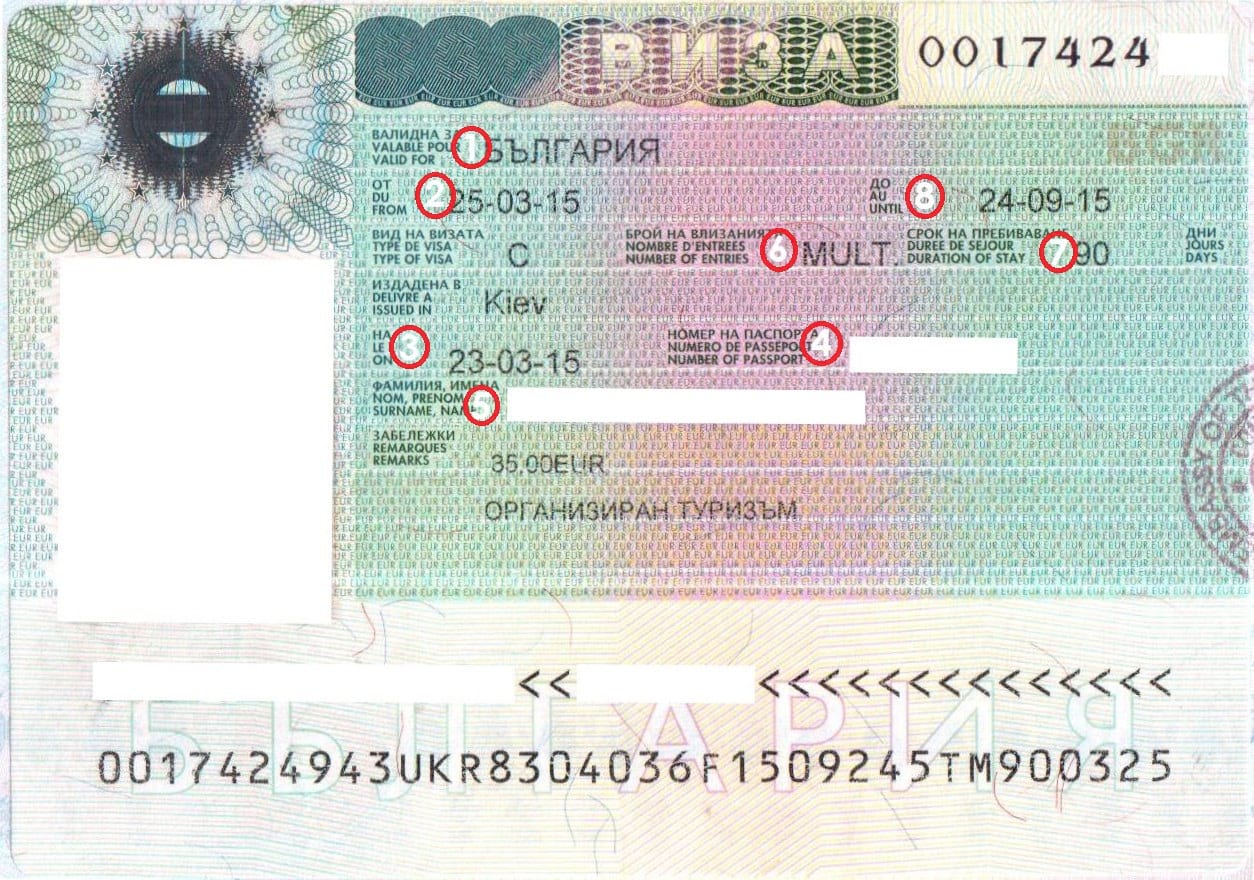
Permission types
Permits are divided into 2 types of work:
- long;
- short-term, seasonal (up to 90 days).
The procedure for obtaining a short-term permit for seasonal work is a little easier. The employer is not obliged to post vacancies on local resources to hire a citizen of the country, he can immediately draw up documents for the work of foreign citizens.
Categories that do not require a work permit
For official employment, a work permit is not required:
- EU blue card holders;
- holders of a long-term residence permit;
- representatives or employees of foreign companies operating on the territory of the Republic of Bulgaria;
- persons who are part of the directorate of Bulgarian companies;
- family members of residents of EU countries, members of the Common Economic Space and Switzerland;
- refugees and persons granted asylum in Bulgaria.
List of required documents
The employer must submit the following documents to the GAZ:
- completed application-declaration;
- a package of documents about the company (constituent documents, certificate of the current state of the company);
- documentary evidence of the need for a job offer;
- 3 color photographs 3.5x4.5 cm;
- a copy of the foreigner's passport with validity of at least 6 months after the end of the employment contract;
- an employment contract (contract) with a salary of a foreigner of at least 1100 leva per month (original and copy);
- translated into Bulgarian and legalized documents on education, qualifications and experience of the invitee;
- certificates-declarations on the number of Bulgarians and foreigners working in the company.
Registration of a work permit for each foreigner costs the employer 600 leva.
The permit is issued for a period of 1 year with the right to extend up to 3 years.
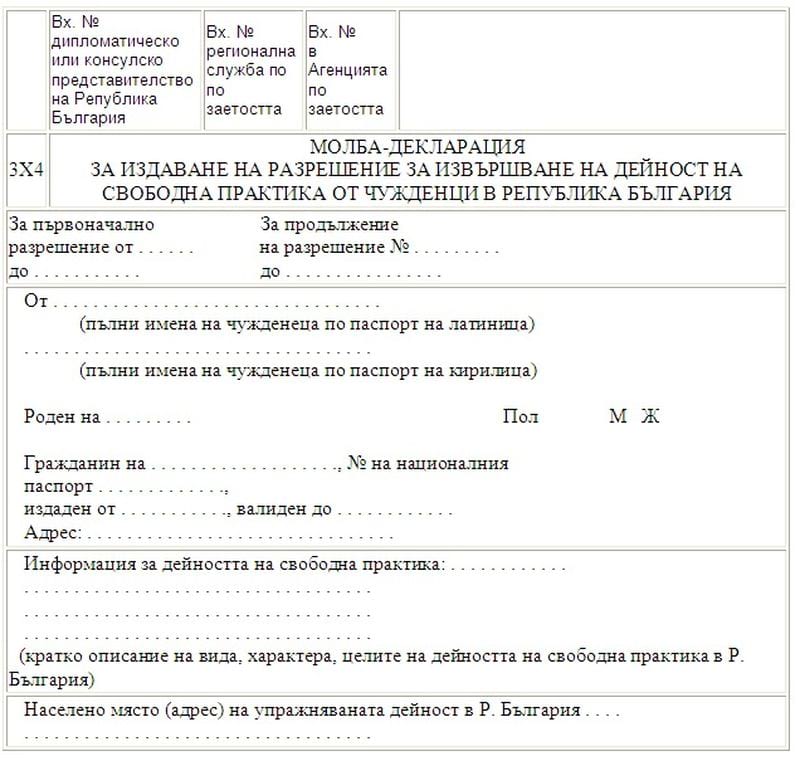
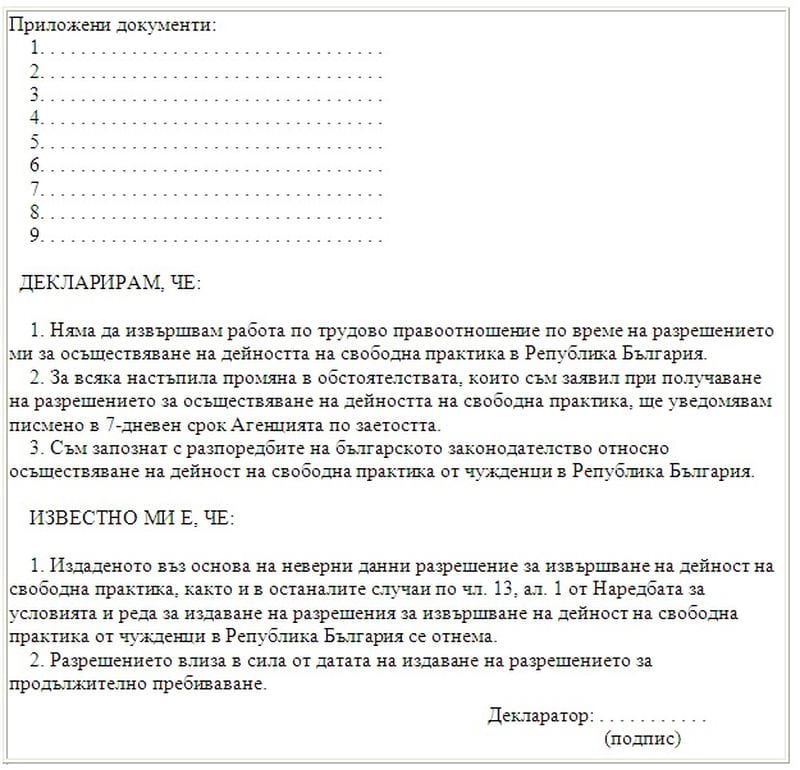
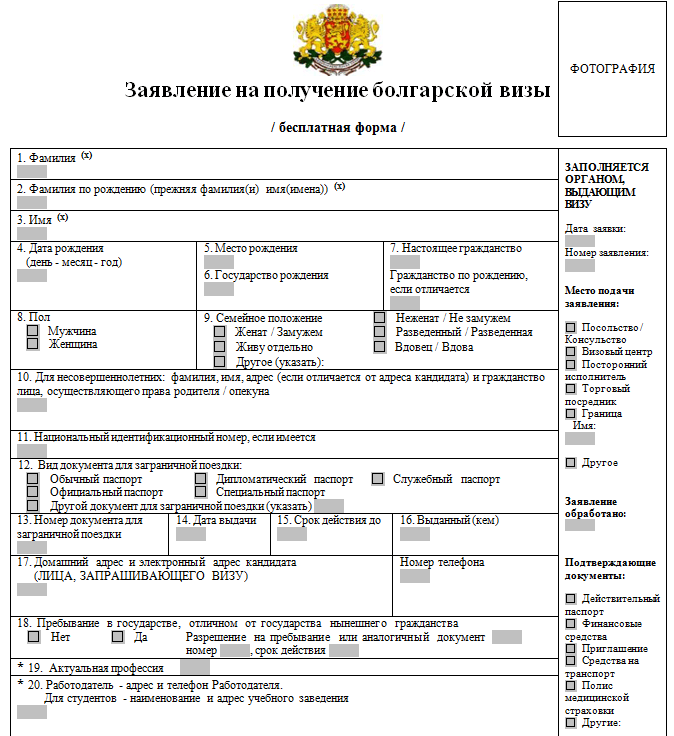
Applying for a work visa
A long-term work visa (type D) is issued at the Representation or Consulate of Bulgaria in the country of residence of the foreigner. The term for consideration of documents is 1 month.
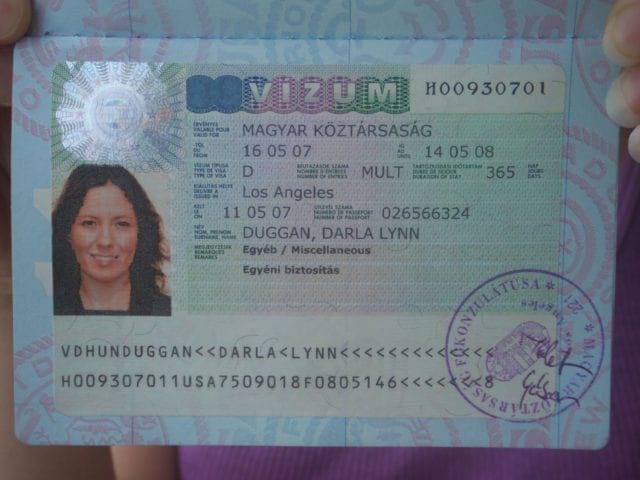
Eligibility Criteria for Employment Visas
When considering applicants for a visa, pay attention to:
- age;
- education;
- knowledge of Bulgarian and English;
- qualification;
- professional experience;
- health status;
- no criminal record.
Work visa extension
A work visa is issued for a period of 1 year with the right to extend. The maximum visa extension period is 3 years. Then you need to apply for a new visa.
Business immigration
The Bulgarian authorities are interested in the infusion of foreign capital into the country, so they encourage foreigners to open businesses in every possible way.
Business immigration options:
- Opening of an LLC (authorized capital - 2 leva), closed joint-stock company (authorized capital - 50,000 levs), open joint-stock company (authorized capital - 100,000 levs). If the capital is 100% foreign, the owner of the company has the right to apply for subsidies and preferential loans. The only condition is the creation of at least 10 jobs for Bulgarian citizens.
- Acquisition of 50% shares of a Bulgarian company or enterprise.
- Investment in economically unfavorable areas of the country in the amount of at least 125,000 euros.
Internship in Bulgaria
Students can take an internship in resort hotels under the Work & Travel Bulgaria program.
Jobs:
- waiter;
- housemaid;
- cook assistant.
More information about the program and vacancies can be found on the website.
Illegal employment
For illegal employment, the employee is fined in the amount of 500-5000 levs, the employer - 2000-20 000 levs. In case of repeated violation, the amount of the fine is doubled.
The steadily developing economy of Bulgaria contributes to an increase in jobs for foreigners. But at the same time, low wages will not allow you to get a decent income and bring good money home. An exception is shift work, when the employer pays for accommodation and meals.




